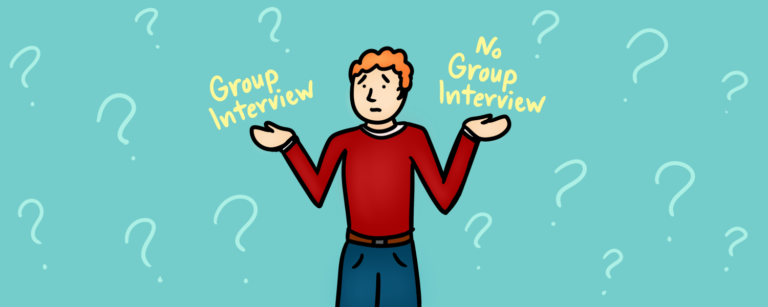Oh, hey! Welcome to the community.
It’s chaotic, exciting, exhausting, and rewarding all rolled into one day. Move-In Day! And as fast as it comes, it’s gone. Move-In Day is over, and you’ve already moved on to thinking about conduct statistics, program and curriculum management, and staff hiring. Staff hiring?!? It’s only September, but it’s time to start thinking because, as you know, time flies.
Interviewing and Trust
We commonly see three types of interviews in Residence Life: traditional one-on-one interviews, panel interviews, and a group interview process. How do you choose the right fit for your institution? More often than not, the decision is based on trust. Trust in the process, trust in your colleagues, and trust in the references. Wouldn’t it be awesome if you spent less time in group interview processes and more time developing your program, connecting with students, and building community? The key seems to be building trust to improve efficiencies.
The Trust Equation
It can be hard to distinguish whom you trust in the workplace. You may trust one colleague to cover your duty shift, but do you trust them to recommend an RA who will work with you for an entire academic year? Hannah Price would suggest there are 4 factors that impact workplace trust:
T = Trust (the willingness or ability to rely on others)
C = Perception of Credibility (trusting what someone says)
R = Perception of Reliability (trusting what someone does)
I = Intimacy (entrusting someone with something)
SO = Perception of Self-Orientation (self-awareness and focus, i.e., whether your attention is primarily on yourself or others. Higher score indicates low self-awareness and a greater emphasis on self).
Price goes on to suggest that the equation, T = (C + R + I) / SO, can be used to determine your level of trust in your colleague. The idea behind the equation is simple: you rate the four factors on a scale of 1-10, and you’ll get a score for your colleagues from there (30 being the highest score). As you can see from the equation, the Perception of Self-Orientation has a significant effect on trust.
Ways to improve trust:
Once I read this, I could think of numerous people whom I’d worked with in the past but had little trust. It helped to clarify for me the difference between reliability and trust. That said, the suggestions that Price makes for reducing self-orientation are thoughtful and easy to implement. She suggests:
- Give others a chance to talk: If you’re dominating the conversation, it suggests you don’t care about the thoughts of others. Ensure you’re allowing others to speak, and invite their contributions to the discussions.
- Listen with intent: Use those active listening skills that you all have. Paraphrase, ask follow-up questions, and show that you’re genuinely listening to the contributions of others.
- Take responsibility for failures: If you mess up, own it. Even if the failure or mistake is only partially your fault, own your part. It shows that you’re honest, you take responsibility for your actions, and you don’t throw blame around.
Increased Trust = Improved Efficiency?
While there are flaws with this simple process, it could give you a sense if you have practical trust, emotional trust or both (two basic types of trust). From there, you have an understanding of whom you need to work with to improve your trust and, therefore, have a better feeling going into a streamlined interview process. Once you’ve built up the confidence with others on your team, your team will be equipped to assess your interview process honestly and if there is room for increased efficiencies. Perhaps you don’t need a second round of interviews or a group interview process. We’ll explore interview options in more depth in future blog posts. However, take a critical look at your operation and whether pieces are in place to assess the candidate or are present due to a lack of trust.
Thanks for being part of our community. We’re glad you’re here.






